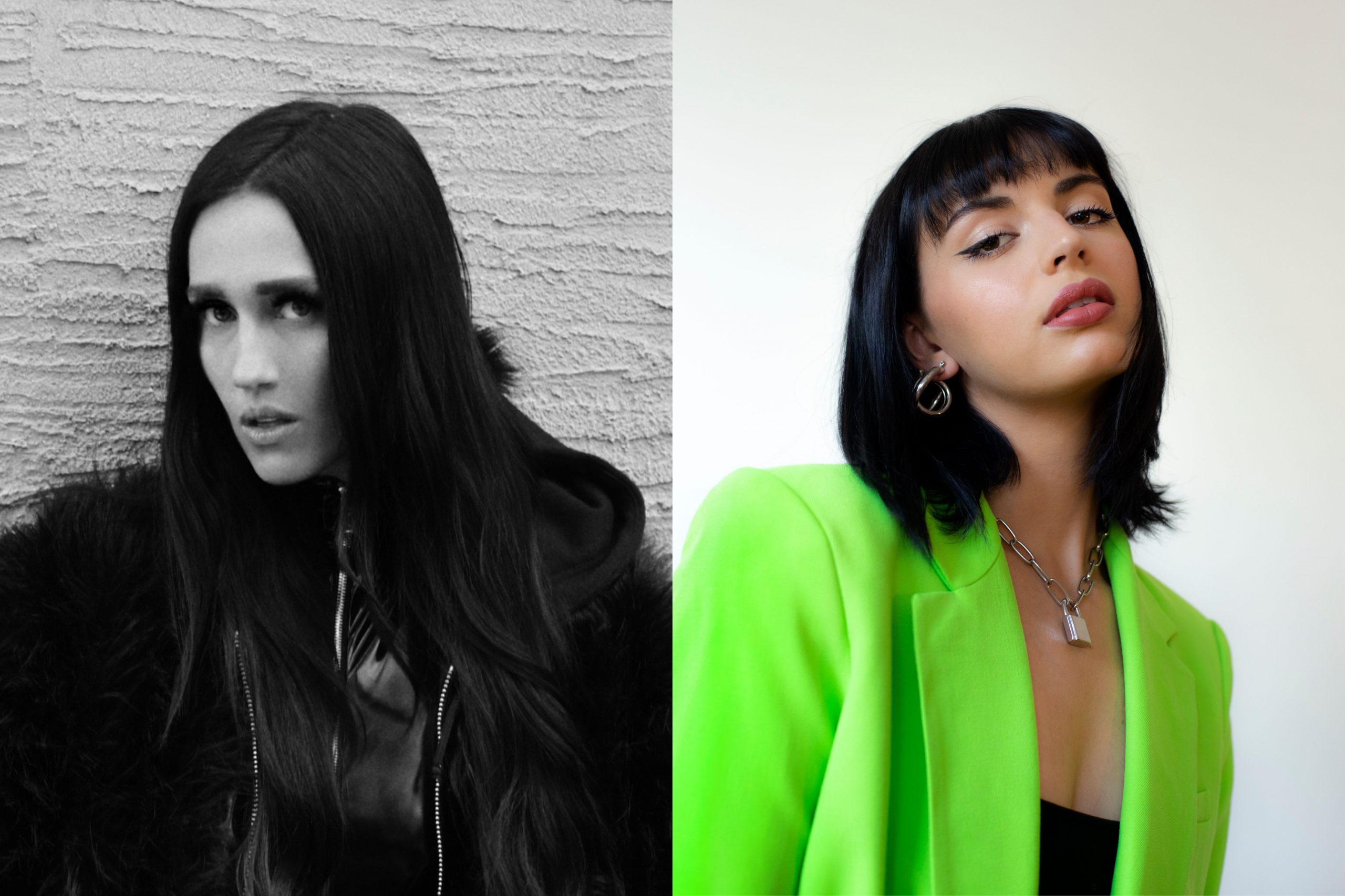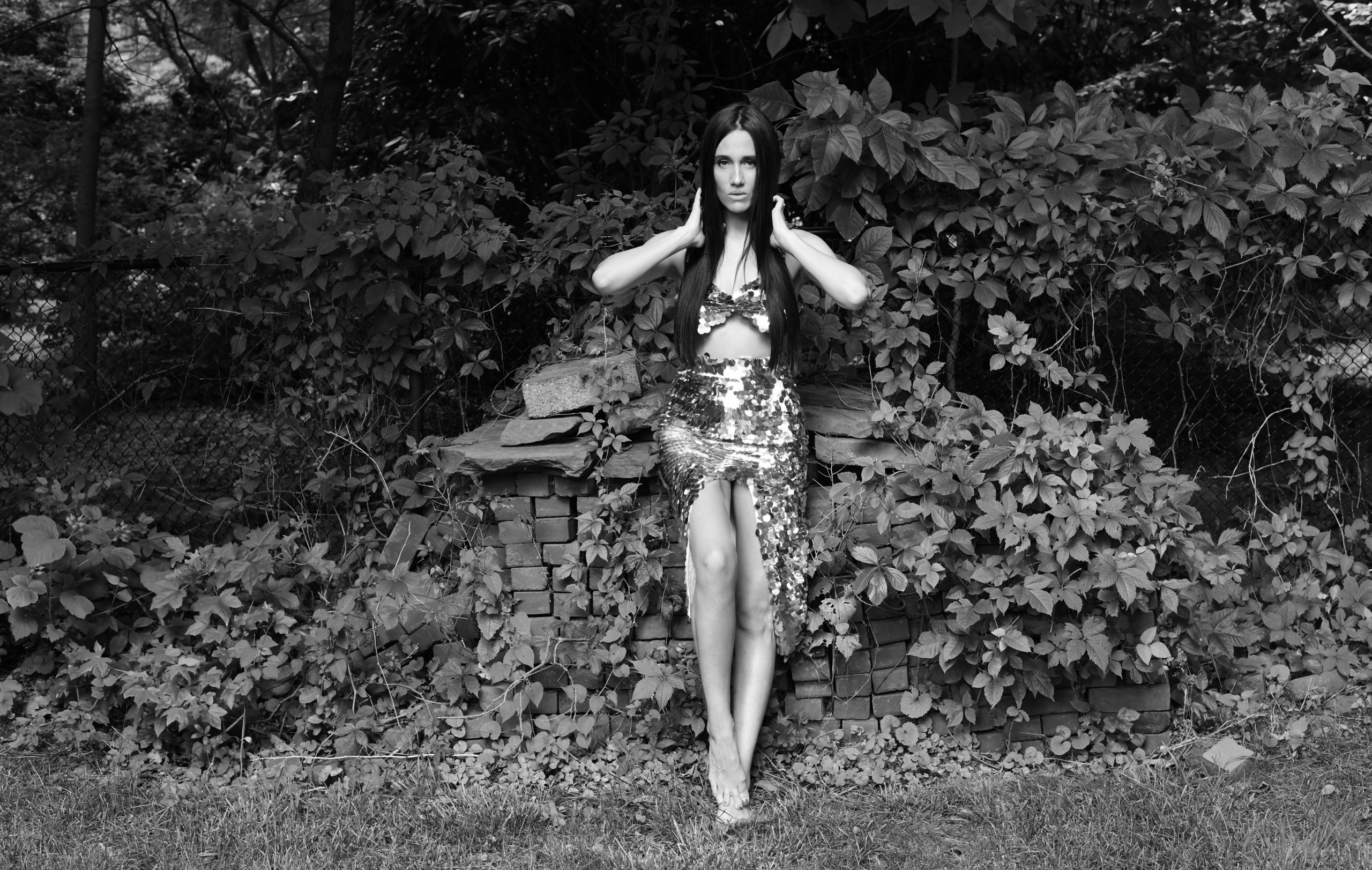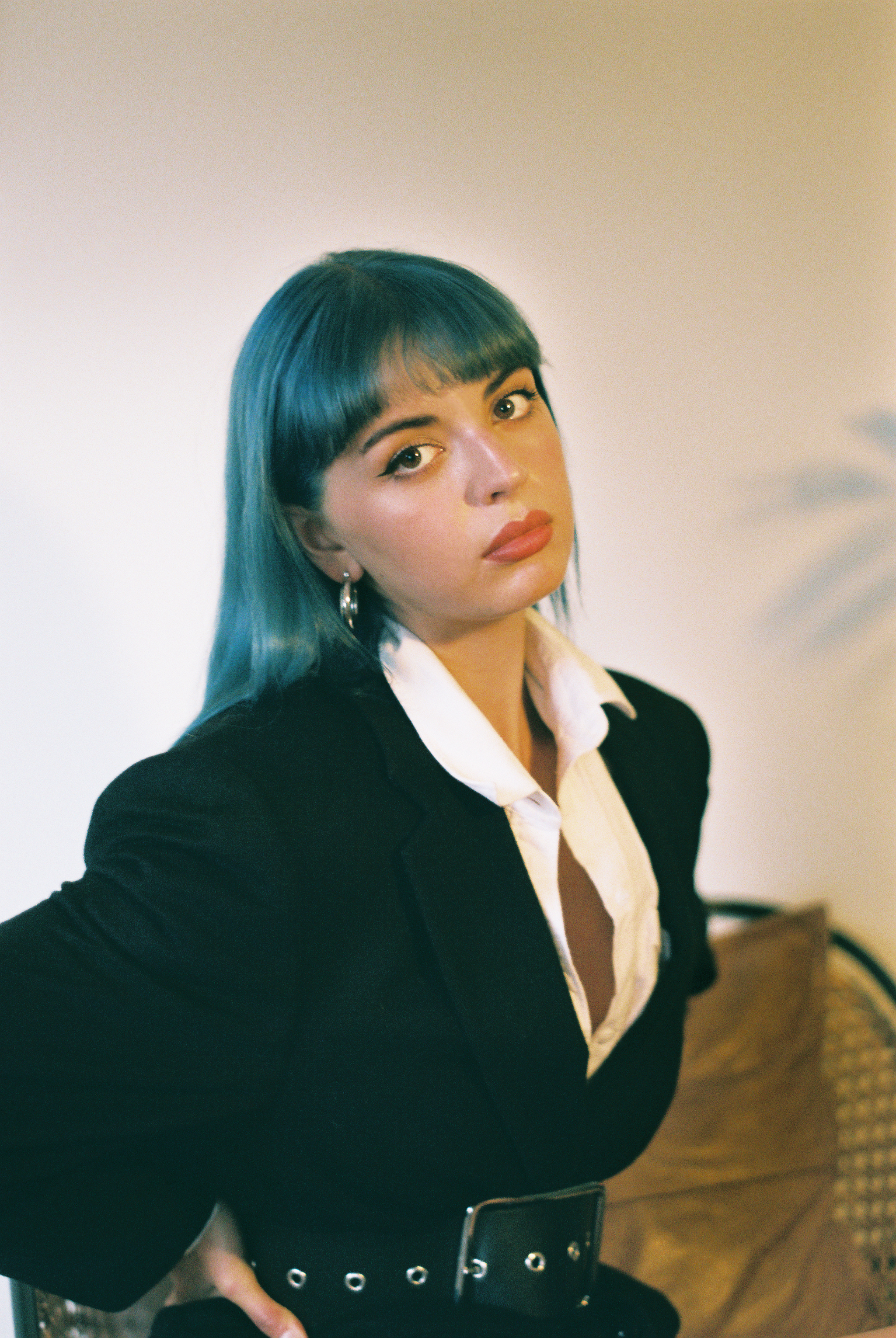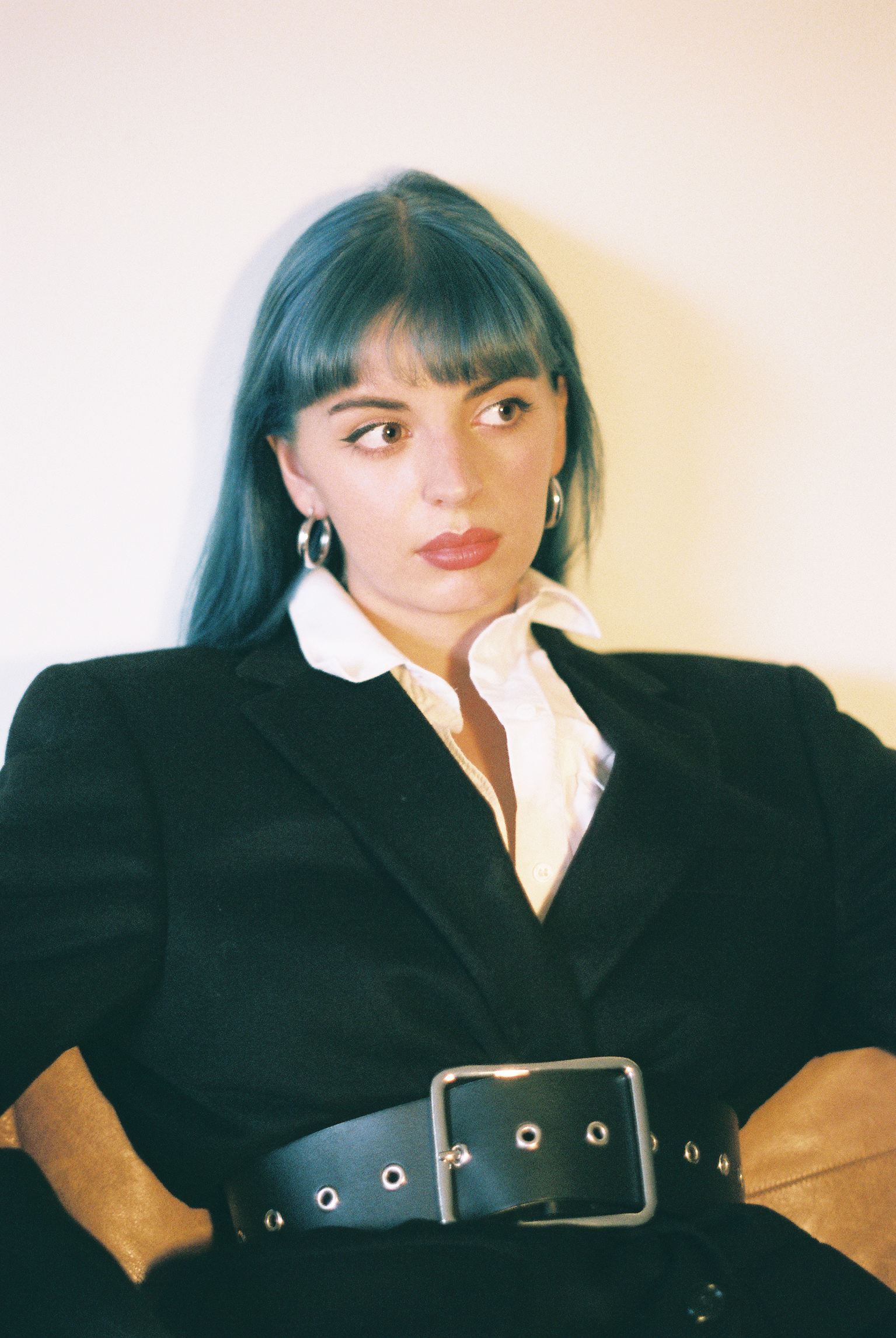
With traditional live performances out of the question in 2020, musicians have been left with little to do but create and reflect. After her first few months in quarantine, pop mastermind Jenna Andrews decided to launch a project that allows her to do just that while sharing the process with fans: The Green Room, a video series of therapy-like Zoom conversations with musicians and mental health experts. “This is the backstage look at how songs are made, and a lot of the ways songs are made is therapy,” Andrews details of the series, which has featured artists including Lennon Stella, Kiesza, Wrabel, and Pixie Lott. “It made sense to do it now. I feel like people need the support more than ever.”
There’s no one better fit than Andrews to prompt such conversations within the music industry, having explored nearly every sector of it over the last decade as an artist, songwriter, producer, A&R consultant, and co-founder of her own publishing company, TwentySeven Music. She’s worked with the likes of Drake, Lily Allen, and Little Mix and most recently scored major hits as a co-writer on BENEE’s “Supalonely” and a vocal producer on BTS’ “Dynamite.” In addition to her successes, however, Andrews has dealt with bullying, anxiety, and depression in and out of the industry. According to her, so has every other artist she knows—including Rebecca Black, who recently opened up about her own experiences on The Green Room.
Rebecca Black shot to a monstrous level of viral fame with the release of the ever-iconic “Friday” in 2011, which unfairly garnered the then-13-year-old a ton of negative YouTube comments, ridicule from prominent media figures, and bullying from classmates. It took an enormous toll on Black’s mental health, but nonetheless she prevailed, turning the fame into a lasting career as both a musician and a YouTuber (and an all-around cool girl). For the ninth anniversary of “Friday” back in February, she made an Instagram post with a courageously touching caption detailing the positive outlook she’s gained as a result of the hardships she faced. Andrews came across the post and felt like they could connect over their experiences with mental health, so she contacted Black through a mutual friend, and they hit it off immediately. In addition to their chat on The Green Room, they’ve begun collaborating on forthcoming music.
We got the pair back on Zoom for a chat with LADYGUNN about mental health, staying confident, the music they’re working on, and more.

How are you both, genuinely?
Rebecca: I’m, at this moment, okay. I think answering the question “How are you?” is very complicated this year. There’s just a lot going on. I’m pretty—like all the time—stressed, but taking that out from the equation I’m good at this moment.
Jenna: Aw, wait I love that answer. I feel so similar. Listen, this year in particular for me career-wise has actually been really good, and I feel really lucky for that, but obviously being aware of life and just having all these things around us is really stressful, and I’m really sensitive to energy, so I always feel like everybody’s different energy is really [helpful.] I feel like I’ve been in my own bubble a lot this year, and only recently have I been able to see people again more often, obviously safely, but that made me feel better. Like Rebecca, I feel really good at this moment, but it’s been up and down.
As artists who have lived with anxiety and depression, how do you stay confident in a profession where you’re judged by your creations?
Rebecca: I was just talking about this yesterday with another writer, and I was thinking this can’t just be a music thing or a creative thing. I feel like so many of us do this in whatever our profession is. I’ve learned as I get deeper into my own love for music, my own vision for myself, and the material that I create, the more that it dominates my mood for whatever is going on. If I’m having a week where I’m, let’s say, having back-to-back days of writing a ton of material, and none of it’s good, I’m immediately like, “My week is terrible. I’m a horrible musician. I don’t know what I’m doing. Why would I ever decide to do this? Maybe I should just go and do something else.” I was just going through this recently. [Laughs] Then I’ll have a moment where I write something good, and it all comes back.
It’s really hard to stay confident and positive, I guess is what I’m saying. What I’m learning is the more that I can talk about it and be actually honest with even just the people that I am working with or talking to whether it’s family, friends, anyone I trust, that makes me realize how less alone I am in the situation and how every single person no matter how big, or credentialed, or talented as they may be, we’re all struggling through it because we’re all confident sometimes and not confident other times, you know? That has been helpful recently for sure.
Jenna: Wow, I feel the same. I feel like we all go through that, which is why The Green Room matters to me too, ’cause I’m constantly so anxious, and I go through all this stuff, and music has always been something that I feel has saved me, and not in a cheesy way. It really has through everything that I’ve gone through. You can play a song or just have something happen where immediately your whole body loosens up, and you’re like, “Oh my god,” and I just feel grateful for that. Especially when you take it out of the competitive way, or you think, “I’m writing this, and I have to be successful,” or “This song has to be big,” like no. Fuck all that. It has to be like, “Let me just do music because I want to, and it makes me happy,” and there’s something really beautiful about how that starts, right? You take all of the ego and everything out of it that people chase after and just make music because you just want to and need to for yourself, or just for the right reasons, and there’s just nothing like it.
Jenna, you work with a lot of young women artists on the rise like BENEE, Noah Cyrus, and Lennon Stella. Is there any mental health advice that you’ve given them that you wish you’d received when you were coming up in the industry?
Jenna: Yeah, I don’t even know if I did it intentionally, but I do work with a lot of females. When I was coming up, I was around a lot of males that were a lot older, and I feel like I was constantly put in the position where I felt I had to act or be a certain way, and I felt objectified, or maybe that my talent wasn’t enough, or things to that extent. I feel like that really affects your mental health especially as an artist. You think, “Am I good enough? Is this how it’s supposed to be when you’re a female? Does that come with the territory?” And it doesn’t, but as a young female, being green and not really knowing enough, you just kind of try your best to do whatever you think you have to do. I mean, not everyone does that, but I feel like a lot of females have to be put in those positions because you don’t have the experience. There’s older men, and it feels powerful, and you have a dream. I feel like for me that’s a big part of advice that I’m there for and can help with. I can be like a bigger sister. It’s a little more relatable, and I wish I had that.

Rebecca, you’ve spoken a lot about the bullying and online harassment that you received from classmates, viewers, and prominent media figures after “Friday” went viral. What drove you to continue on a career in entertainment knowing the impact that the negativity had on your mental health?
Rebecca: Ugh, that’s a question I ask myself every day. No, I’m kidding. In the past I don’t think I was aware of myself doing this, but now I definitely know I do it, but when things get really frustrating, or difficult, or hurtful—which I luckily don’t deal with anymore—it makes me feel like what I was saying earlier, like “What am I doing? What does all this mean? I feel like I know nothing, I feel terrible,” whatever it might be. I always come back to myself as a little girl who just loved to perform. She loved music. She loved entertaining people. She loved all of those aspects of it, and that was where I began to find the unique things that made me different from other people, and especially as young people I think that’s the essence of finding who you are and what is going to dictate the rest of your life.
You’re planting those seeds so early on, and so I think I just always come back to that and ask myself, if my ten-year-old or thirteen-year-old self met me now, would she like me? I don’t look at it in terms of whether she would be proud of the success I’ve had or not, but would she be proud of me for doing what I’m doing? And would she like the choices that I make? Or would she be inspired by what I’m doing? I think that is always the driving factor for me because we all grow up, but I think we can all still connect with that little kid version of ourselves that would just look at the sky and feel like, “Ugh, I can do anything.”
You put yourself in another vulnerable position earlier this year when you publicly came out as queer, which I wanted to congratulate you on. How did it feel to share that with the world following the other experiences you’ve had with negativity on the internet? Were you apprehensive about sharing it?
Rebecca: The only apprehensiveness I had was that not only as a member of the community, but as someone who had the utmost respect for the entire queer community before I even knew what was going on with myself, I just wanted it to be meaningful. Not just to me, but to so many of those who’d shared their stories with me. It wasn’t really just a journey that I did on my own, it was through the help of the people who saw me for me, and saw an opportunity to be vulnerable with me, and trusted me with that.
I knew it would be freeing, and I was so stoked to do it for so long, but I just could never quite find my moment. I think when I took all of the pressure of it off and said, “You know what? I’m not going to try to plan this perfect movie moment for myself. I’m just going to stop thinking about it so much,”— I definitely have a problem with overthinking—it just became so natural, and I could’ve never expected the reaction that I got and the amount of positivity I got. It felt like I was finally sharing a side of myself that I knew I had in common with so much of my audience but my audience didn’t know that they had with me. Every day I’m still so pleasantly surprised and delighted by the conversations I get to have with my audience. So many of them are my peers and are going through very similar personal journeys like I am, so it’s been awesome. It’s been really great.
I feel so lucky to have had the experience that I have had. I just hope that for those who aren’t able to have that same experience as myself—because I know there are still numerous parts of the world and even just parts of our country that are so unaccepting and so discriminatory against queer people still—that it gives them a bit of light to show like, “Hey. One day this is possible for you, and this is how it should be.”

You both said on The Green Room that your experiences with bullying have made you better artists. Can you elaborate on that and how it affects you today?
Rebecca: I just think that it’s given me things to talk about and things to question and understand. I wouldn’t know who I was if I didn’t go through what I went through regardless of “Friday” or not. I think it just gave me a really unique experience and point of view that is what dictates what I talk about and what I care about.
Jenna: Yeah, and honestly you actually said exactly the words I was gonna say. It gives me something to talk about. I feel like if I didn’t have this experience or this pain, I wouldn’t be as good because I think what makes music good and relatable is for people to feel like there’s some sort of reality to it. A lot of times when people listen to songs, and they’re like, “This isn’t that good,” the reason it isn’t is ’cause there’s a disconnect. No one cares if someone sings really well. It’s like, “Okay, great,” but they want to feel you, so if you have that it’s almost like a blessing to have those experiences ’cause you can actually help people, and that’s kind of the point.
Lastly, what can you tell us about the music you’ve been working on together?
Rebecca: That it’s good! [Laughs] Really though, I feel so lucky to have been able to work with Jenna, and I’m so excited for what we’ll continue to make, and I think that both of us putting such a focus on mental health and understanding that is really what unlocks just a better version of ourselves as artists, kind of repeating what I’ve said before, but I love working with women, and I love working with fearless women, and that is what Jenna is. I’m just so proud of what we’ve made, and I think it represents both of us and both of our experiences really well.
Jenna: Aww! I agree, and I honestly feel like the stuff that we’re going to make is even going to get better and better. I mean, the first song that we did is amazing, and I feel like this most recent song—I’m working on the vocals for it, but it’s gonna be so beautiful, and I feel like just being in your energy space and being able to create at this time in your life, Rebecca, I feel like you’re really in a moment that’s about to be like, “Wow.” You’re like this flower that’s just blossoming, and I really love that. I think we’ve talked about it, but hopefully we can work in person soon because that is the next plan. I feel like we just have an instant connection, which obviously is everything.
CONNECT WITH JENNA ANDREWS
YOUTUBE // TWITTER // INSTAGRAM
photos / Shervin Lainez
CONNECT WITH REBECCA BLACK
YOUTUBE // TWITTER // INSTAGRAM
photos / Bia Jurema
story / Jack Irvin

